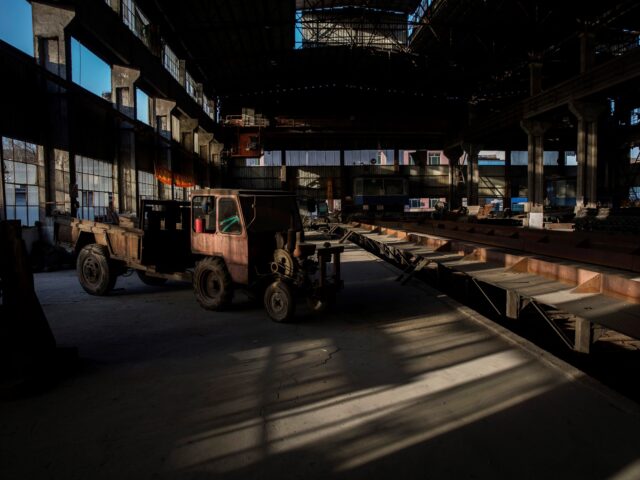China’s Ministry of Industry and Information Technology (MIIT) struggled on Tuesday to explain the mass exodus of foreign investors from lockdown-ravaged Chinese cities by claiming it was all just a bit of harmless “industry chain relocation” and insisting China remains “a top destination for foreign investors.”
China’s state-run Global Times uncritically quoted the desperate spin from MIIT official Yao Jun:
Though some foreign-funded firms have promoted a diversified layout, overall investment in China by foreign investors has not slowed down, Yao said, noting that China’s actual use of foreign capital reached 564.2 billion yuan ($83.5 billion) in the first five months of the year, up 17.3 percent year-on-year.
China’s manufacturing industry is increasingly attracting all kinds of resource factors, and more and more foreign capital is being invested in key areas such as advanced manufacturing, high and new technology, energy conservation and environmental protection, according to the official.
From January to May, the nation’s high-technology manufacturing sector saw its actual use of foreign capital surge 32.9 percent year-on-year, MIIT data showed.
In truth, foreign investors are fleeing from China because they fear their business interests will be trapped in one of China’s deranged “zero-Covid” lockdowns. These lockdowns have inflicted considerable damage on the economies of major trade and industrial hubs like Shanghai.
The Economist in May noted foreign capital is also growing nervous about the sense of doom hanging over the Chinese real estate market, a situation that has continued to deteriorate over the past two months. In July, middle-class property owners launched a pitchforks-and-torches “mortgage revolt,” protesting stalled construction projects and collapsing home values by refusing to make their payments.
Some investors have additionally grown nervous about the moral hazards of doing business with the genocidal Chinese regime or with autocracies in general after Russia’s invasion of Ukraine.
Even China’s propaganda organs admitted that the Uyghur Forced Labor Prevention Act, which took effect in June, made buyers nervous about acquiring products and materials from China that might be blocked by U.S. Customs because the suppliers cannot prove the items were not tainted with forced labor.
The Global Times touted foreign automakers like Mercedes-Benz and Tesla expanding their production facilities in China, an example of how the mad push for electric vehicles and “green energy” has empowered and enriched the Communist regime. Other industries with less political leverage behind them are proving more sensitive to the perils of sinking capital into China.
Reuters reported last week that foreign investors cut their holdings of Chinese bonds in June for the fifth month in a row “as a perception of political risk and a slowing economy sent funds fleeing from what was once a popular trade.”
Reuters pointed to “rising geopolitical tension and fresh [Chinese coronavirus] outbreaks in China” as reasons for the bond selloff and also mentioned the “turmoil in China’s property markets.”
The Chinese government could take some solace in the predictions of analysts who believe the outflows might “slow” — and the yuan might recover its losses — if China can demonstrate that it has retained more of its “fiscal health” than other large countries. Also, the pace of outflows slowed after the brutal two-month lockdown in Shanghai ended.
“The story of U.S. recession is brewing, and China is starting to recover. I don’t think capital outflows will last very long,” predicted Hong Kong-based ING economist Iris Pang.
The Global Times announced on Tuesday that government financial aid has been extended to 500,000 troubled businesses in Shanghai, an obvious bid to reassure the nervous business community that Shanghai will recover from its lockdown panic. Government bankers are extending low-interest loans to “micro-sized and small market players” to nourish wobbling enterprises back to health.

COMMENTS
Please let us know if you're having issues with commenting.